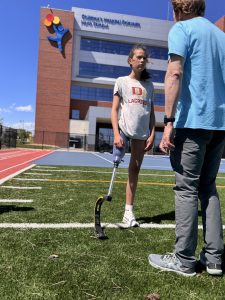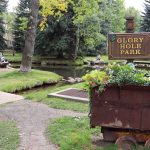Pitkin County hears details on deed restriction for mobile homes park purchase
Details regulate mean income, rental stipulations, and more for residents and foreclosure details for funds providers like Pitkin County

Austin Colbert/The Aspen Times
The West Mountain Regional Housing Coalition has been making the tour of local governments who contributed toward the Aspen Basalt and Mountain Valley Mobile Home Parks purchase to present them with details surrounding the communities’ deed restriction and their financial contribution.
April Long, executive director of WMRHC, made a recent appearance in front of the Pitkin County Board of County Commissioners on Thursday to fill them in and let the commissioners know what exactly their $3.25 million contribution was buying.
“The deed restriction is an affordable housing restrictive covenant,” Long explained. “It runs with the property forever.”
The deed restriction carries with it requirements for future tenants of the park, she said. The agreement stipulates that the homes in the Aspen Basalt and Mountain Valley Mobile Home Parks must be owner-occupied; short-term rentals are not allowed with the exception of some single room rentals; and new buyers must be locally employed and make less than 200% of the area median income (AMI) of Garfield County.
Present tenants are “grandfathered in” to some of the restrictions in the covenant, primarily the local employment and AMI requirements. Short-term rentals are prohibited for both current and future tenants, and there are currently none being operated in the two parks, according to recent surveys by the WMRHC.
There are additional restrictions on the transfer of the properties within the parks. If a home in the park is listed for sale and the seller has multiple offers at asking price within the first 30 days, the seller must sell the home to the lowest income qualified buyer.
Pitkin County and other local governments who contributed to this effort also have the ability to recoup some of their money if there is a foreclosure on the mobile home parks.
“The loan agreement says that we are giving this money toward these purchases of these properties and that that money does not need to be repaid except upon resale of the property or foreclosure on the property,” Long explained. “In the event of foreclosure, if there’s enough money in the property to repay us in full, we would be repaid in full plus our interest requirement. If not, we will be paid a (proportional) share of the amount available.”
Commissioners’ questions largely focused on affordability, as well as some legal and definitional questions about the deed restriction.
With regards to affordability, Commissioner Greg Poschman noted that he had heard some concerns about affordability for residents at present fundraising levels.
There are currently $16 million in funds committed to this project, which had an initial goal of raising $20 million to keep rents affordable for residents. With that money, the residents have had an offer accepted by the current owners of the two mobile home parks and are continuing to fundraise toward that $20 million goal, but Long has said that they need to start planning on operating with only the $16 million to start.
“We call it at $16 million because now we’re prepping the loan documents and we have to move forward with closing,” she said. “We are continuing to fundraise in an effort to provide rental assistance for those situations where the residents cannot … make the new rent price.”
Fundraising efforts are ongoing. Currently, Aspen One is conducting an auction of old Aspen Snowmass trail signs to raise additional funds for the project.
WMRHC is also screening a documentary at the Third Street Center on Oct. 3, showcasing a mobile home community going through the process of becoming a resident-owned community.










